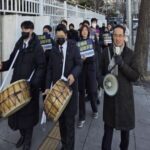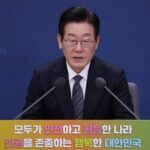Russia’s Far Eastern Federal University (FEFU) Announces Cooperation
Past Records of North Korean Student Visa
Report on the Status of Overseas Dispatched Workers

Amid increasing exchanges between North Korea and Russia, it has been reported that the Far Eastern Federal University (FEFU) of Russia has announced plans to further cooperate with six universities in North Korea.
The international community has criticized Russia for strengthening ties with North Korea through illegal arms dealings and exploiting the visa laundering system to facilitate the dispatch of North Korean workers abroad, a primary foreign currency-earning strategy for North Korea.
According to RFA, Evgeny E. Vlasov, Vice-President for International Relations at Far Eastern Federal University, stated in an interview with a media outlet, “Considering the relationship between Russia and North Korea, we plan to expand cooperation in the field of Russian language studies with major North Korean universities.”
He explained that “this cooperation aims to enhance the capabilities of North Korean experts and promote and spread the Russian language and culture.”

It’s worth mentioning that FEFU already operates a student exchange program with Pyongyang University of Foreign Studies, Kim Chaek University of Technology, and Kim Il Sung University in North Korea.
This additional cooperation includes the University of Sciences (Pyongsong, South Pyongan), Huichon University of Telecommunications (Chagang, Huichon), Hamhung University of Mathematical and Physical Sciences (Hamhung, South Hamgyong), Pyongyang University of Printing Engineering, and Pyongyang University of Science and Technology.
The international community has raised concerns that Russia’s claim of promoting learning is a loophole to circumvent UN Security Council sanctions and dispatch workers.
According to the UN Security Council resolution, all member nations are prohibited from employing North Korean workers. Therefore, issuing work visas to North Korean nationals is illegal.

However, there is an argument that North Korea can circumvent this by issuing student visas and dispatching workers overseas.
If North Korean workers are dispatched, it is speculated that it would not only secure a stable source of foreign currency for North Korea but also benefit Russia by employing low-wage, skilled North Korean workers to develop the relatively underdeveloped Far East region.
With the lifting of border closures due to COVID-19, it has been confirmed that North Korea deployed many North Korean workers for foreign currency earning by evading sanctions by obtaining visas for study and tourism purposes.

Russia simplified the tourist visa issuance procedure for North Koreans last year, allowing North Korean residents to stay in Russia for up to six months with just a hotel reservation, adding weight to the concerns raised by the Security Council.
Meanwhile, it has been reported that the National Intelligence Service is closely monitoring the ongoing dispatch of North Korean workers overseas.
The intelligence agency interpreted the demand of North Korea and Russia fulfill each other as North Korea’s urgency in foreign currency earnings and Russia’s suffering from a shortage of young workers due to the invasion of Ukraine.
North Korea’s future moves draw attention, as reportedly the National Intelligence Service has confirmed that thousands of North Korean workers are staying in some regions of Russia, such as the Far East.















Most Commented